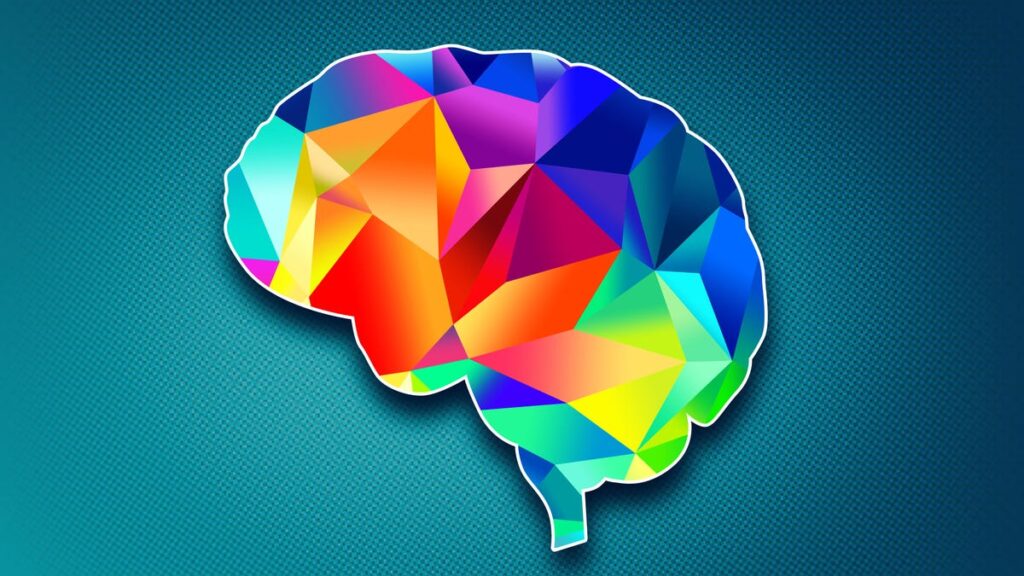We’re entering that time of year when burnout strikes. Whether you’re busy, tired, or unmotivated, we’ve been there. That doesn’t mean you have to stay there. While you can’t control everything that happens to you, you can make a conscious effort to increase chemicals in your brain that are associated with happiness.
Four main hormones trigger feelings of well-being. Understanding these chemicals and how they work can help you find ways to increase their production and keep you entertained.
To explain exactly how these “happiness” chemicals work, I spoke with Loretta Breuning, founder of the Inside Mammal Institute and co-author of Happy Brain Habits.
Happy Chemicals: Secrets to a Happy Brain
Almost everything that makes you feel “happy” is related to one of the four happy hormones: dopamine, serotonin, endorphins, and oxytocin. Here are some ways to enhance them naturally.
dopamine
The hormone dopamine is associated with motivation and rewards. This is why you feel motivated when you set an exciting or important goal, and why reaching it feels good. On the other hand, if you have low dopamine levels, which experts say can occur with depression, it could explain why you feel less motivated or lose interest in things you previously enjoyed.

Committing to a hobby or sport can increase your dopamine.
“Proximity to a reward triggers dopamine. When a lion approaches a gazelle, her dopamine surges and the energy needed to hunt is released. Your ancestors released dopamine when they discovered a watering hole,” Browning said. “The expectation of reward triggers good feelings in the mammalian brain and releases the energy needed to obtain the reward.”
How to increase dopamine
Some less healthy habits can increase dopamine, such as drinking caffeine, eating sugar, or taking certain recreational drugs. You can find ways to stimulate this hormone without resorting to potentially unhealthy or addictive substances.
“Embrace a new goal and take one small step toward it every day. Every time you take a step, your brain rewards you with dopamine. Repetition builds a new dopamine pathway until it’s big enough to match the one you’ve formed. The competition for dopamine habits.
You may have set goals for your career, your job, or how much money you want to make. Don’t forget personal goals. Devoting yourself to a rewarding hobby or sport can be just as satisfying as a career goal. Don’t just set some big goals that will take a long time to complete, take short-term goals too so you can stay motivated.
“Set a short-term, long-term and medium-term goal so you’re always closer to one goal when another gets in the way. Focus on what you can control and don’t wait for others to set goals for you,” says Browning.
serotonin
Serotonin is a neurotransmitter that plays a role in mood, but it also helps regulate other functions of the body, such as digestion, sleep, and bone health. When it comes to happiness and how you feel every day, serotonin is important in reducing depression and regulating anxiety.
How to increase serotonin
“Confidence triggers serotonin. Monkeys will try to outcompete each other because it stimulates their serotonin. People do this a lot, too,” Browning said. You may have never considered the neurochemical level of confidence, but according to Browning, if you don’t prioritize it, your serotonin levels may suffer.
If you are stuck in a cycle of low self-esteem or allow others to undermine your confidence, it will be difficult to build it back up. This may sound strange, but don’t ignore your need for respect and status.
“You can develop a belief in your worth. If you focus on your losses, you suppress your serotonin, even if you are a rock star or a CEO. You can develop the habit of focusing on your wins. Your Serotonin will be affected if you don’t do this,” Browning said.
In addition to focusing on what you have accomplished in life, you can build confidence in other ways. One way to do this is to develop or adopt new exercise habits that can help boost your confidence over time. Something else you can try is to find ways to leave your comfort zone every day. Challenge yourself to adapt to new things every day, even if it feels uncomfortable at first, and you’ll build more confidence.
oxytocin
Oxytocin, sometimes called the “love” hormone, is related to how people connect and trust each other. Certain activities, such as kissing, cuddling, and having sex, trigger the release of oxytocin in the brain.
It explains why you feel happy when you pet or hug your pet. It is important in childbirth because oxytocin helps the mother’s uterus contract to deliver the baby, and oxytocin also plays a role in breastfeeding. It also helps parents bond with their babies after birth.

Playing or cuddling with your pet can greatly increase oxytocin.
How to Increase Oxytocin
You can increase oxytocin through physical intimacy with others. Beyond the physical aspect, it’s important to know that the way oxytocin is released is linked to mood.
“Social trust triggers oxytocin. If you hug someone you don’t trust, it doesn’t feel good. Trust comes first. You can build social trust by taking small, positive steps toward people,” Blau Ning said.
You can contact a friend or contact you would like to learn more about. Send someone a thank you note or card to tell them you are thinking of them. “Take a small step toward someone every day and they may reciprocate in a few months, but if you keep doing it, you’ll build a network of trust,” Browning said.
endorphins
It’s well known that endorphins are closely linked to exercise: it’s this phenomenon that explains runners’ high endorphins, or the post-exercise endorphin “rush.” They act as “natural painkillers,” helping to minimize pain and maximize pleasure. This chemistry experience may explain why a runner may hang on with an injury at the end of a race but not notice until the end of the race.
“In its natural state, it helps injured animals escape predators. It helped our ancestors run for help when injured. Endorphins evolved for survival, not to party. If you have endorphins all the time It’s so high in peptides that you feel like you’re on a hot stove and walking on a broken leg,” explains Browning.

Laughter is a great way to naturally produce more endorphins.
How to increase endorphins
Laughing is a way to naturally increase endorphins. The same goes for eating dark chocolate, watching your favorite TV show on Netflix, exercising, and meditating.
Endorphins are released in response to pain, but that doesn’t mean you should look for ways to cause harm to yourself (such as overexercising or pushing past your limits) just to feel good.
“Injuring yourself to stimulate endorphins is a poor survival strategy. Fortunately, there are better ways: laughing and stretching. Both of these methods shake your internal organs in erratic ways, causing moderate wear and tear and a moderate flow of endorphins,” she says.

